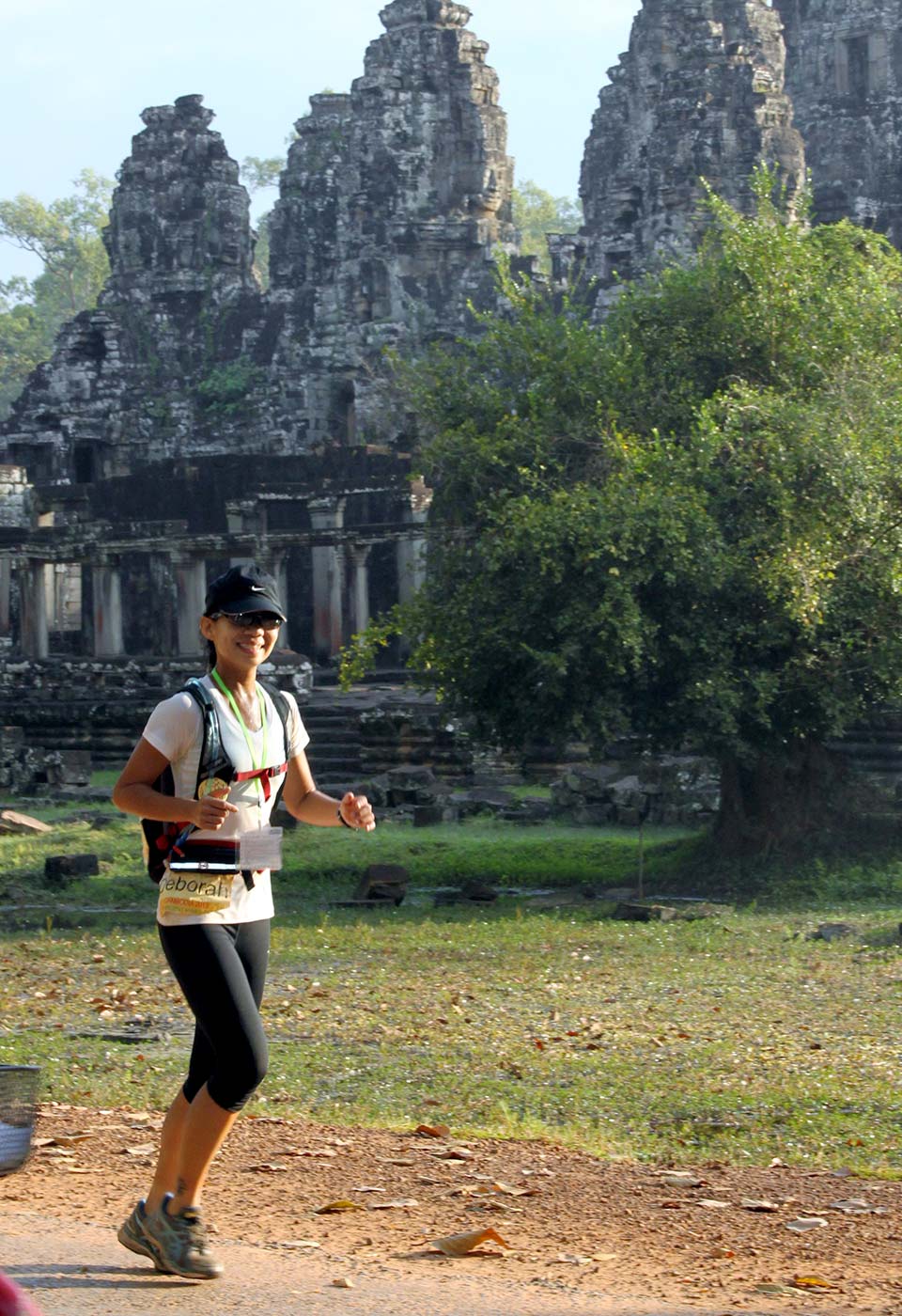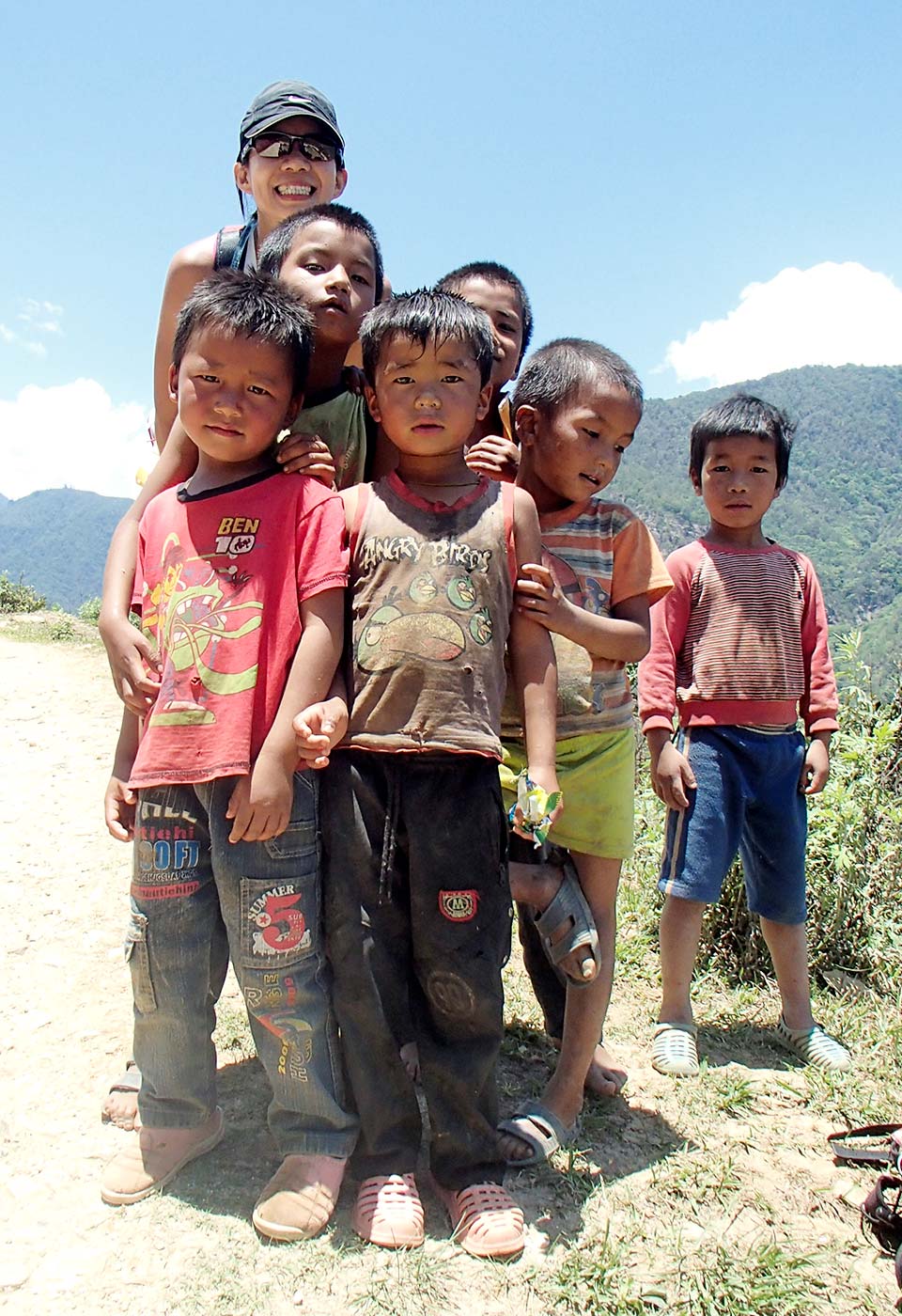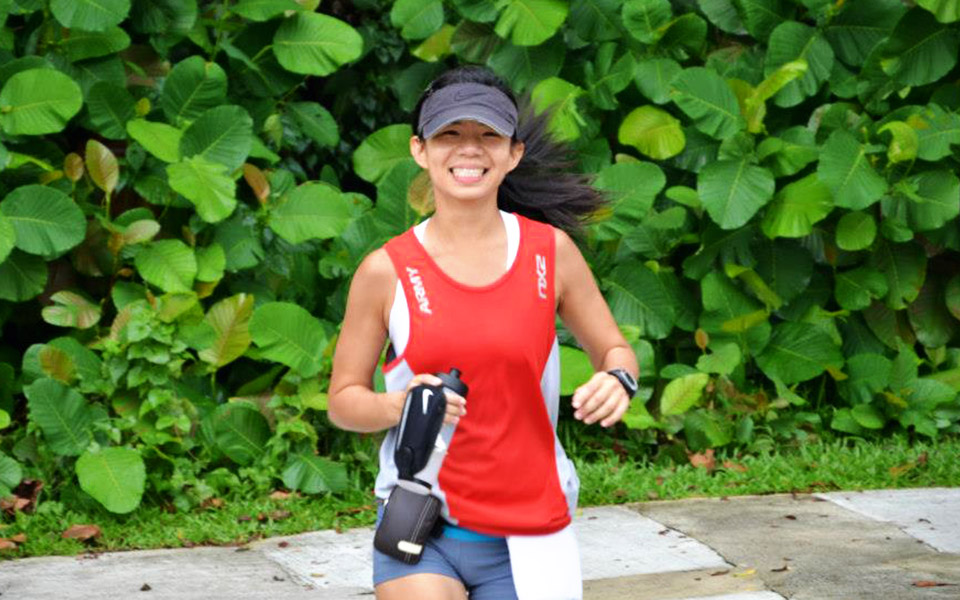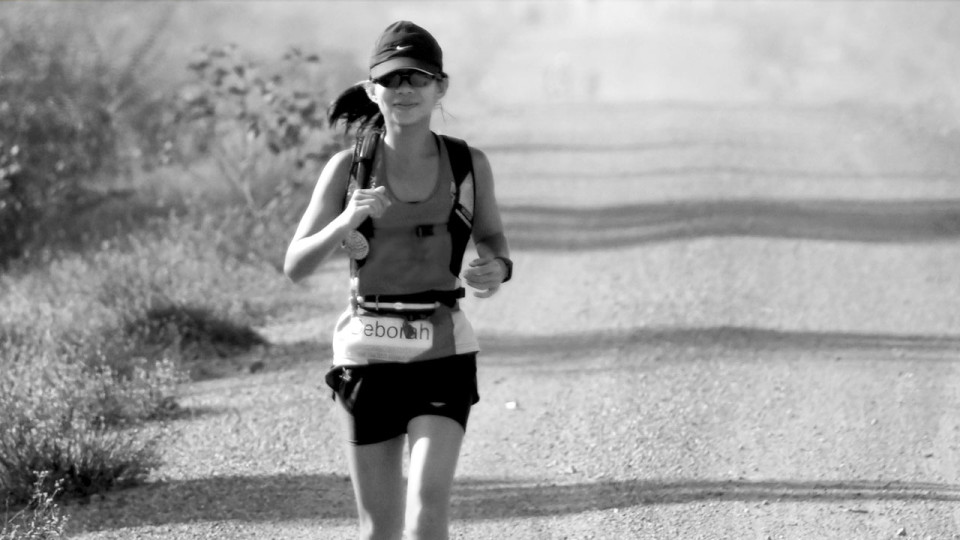It’s great to watch fit, toned, mentally-focused ultramarathon runners in person, but until you understand what motivates these remarkable athletes, you have only got of half the picture. RunSociety wish to introduce you to Deborah Koh, a take-no-prisoners ultramarathon runner who makes no apologies for her addiction.
RS: Running ultramarathons seems exhausting; why not just run short distances?
Deborah: It’s boring to run short distances after experiencing the thrill of ultramarathons! I cut my teeth on short runs in 2007. Then I needed more. When I heard that Sundown was sponsoring an 84km ultramarathon in Singapore, I thought,
“Wouldn’t it make more sense to train once for an ultra, rather than twice a year for short runs?”
In no time, I was hooked. By the time Sundown’s 100km marathon arrived in 2011, I was addicted.
RS: What’s the difference between domestic and overseas marathons?
Deborah: Mostly, it is activities planned by event organisers to show international runners the beauty and hospitality of the host country. I love traveling and seeing the sites. In Singapore, I might socialise with fellow competitors over coffee, brunch—even a massage—but when overseas marathon planners offer us runners chances to relax and socialize on a Phuket or Bali beach, tour natural wonders or rent an ATV or jet ski, I’m always ready to take them up on these unforgettable experiences.

RS: What separates ultramarathoners from other runners? Are ultras a special breed of runner?
Deborah: Yes, I think we are unique, but perhaps not for reasons that first come to mind. Many of us participate in ultramarathons because we have a story to tell or a cause we hold dear. Winning an ultramarathon means a spotlight is shone on both the runner and her passion.
RS: Sounds like you are talking about “character” and “values” that transcend “winning”.
Deborah: I am. Physical endurance is great, but when running becomes exhausting and uncomfortable, or if one sustains an injury, ultramarathoners pull from our reserves. For example, in 2013, I was running the Craze Ultra 100 Mile (single stage)—my first time running more than 100km. When the sun came out on day two, I still had 40km to run and I was sleep deprived. That’s when I noticed that an accumulation of salt in my body had triggered two huge abrasions on my underarms. Talk about pain. I had to alter my running style so that my arms did not contact my skin. Regular marathoners might have given up. Not us ultramarathoners! I finished, battered arms and all.
RS: Ever thought about staying away from marathons in hot climates after that awful experience?
Deborah: (laughs) No way. I adore overseas marathon running. I love representing Singapore. I feel like an ambassador when I walk up to an overseas starting line. I enjoy meeting local people, learning about their cultures and visiting sites most Singaporeans only see in travel books. Even if an ultramarathon is held in a hot climate, I’m happy to pay my own travel expenses and go. Actually, my budget determines whether or not I go, not the weather. For example, I wanted to do the Antarctic Ice Marathon, a 100km ultra held on a continent few people visit. I would have needed around S$10k to compete. I declined only because my current budget said no.
RS: Speaking of overseas events, are fellow Singaporeans as enamoured of overseas ultramarathons as you? Which country is the favorite of your countrymen and women?
Deborah: I am not alone when it comes to loving overseas events. Participating in them has become trendy in Singapore. Why? I think some Singaporean marathoners are curious about different types of terrain. Others may feel that international events offer more challenges. Seeing how other people live and learning about new lands likely attracts some, but I have no statistics to confirm that. Specific locations? Japan, Hong Kong, Malaysia, Indonesia, Taiwan, Australia, Thailand and India are popular with all of us competitive Singaporean runners.

RS: Beyond seeing the world, what keeps you competing?
Deborah: My friends and family are supportive, so for me, I want to continue to be a role model; a symbol of persistence, fortitude and commitment—an inspiration, maybe. We live in a world filled with people eager to give up before they give things a serious try. A few words of encouragement from those I love is all I need to persevere. Besides, bitching, moaning and whining (BMW!) does nothing but ruin one’s mood and make it harder to stay the course.
RS: When it comes to training and competing, are ultramarathoners “lone rangers”?
Deborah: We have to be. One must focus, focus, focus when training. It breaks concentration when running with others. I like running alone for many reasons. There are no diversions—chatting or the aforementioned BMW can break focus—and since “solitude” is what runners face when competing, being a training lone ranger has advantages. That stated, nobody enjoys socializing as much as I do before and after. We are a tight community at the finish line!
RS: If a woman wants to run a few miles in your shoes, what advice would you offer?
Deborah: First, remove the word “procrastinate” from your vocabulary. Next, register so that you cannot change your mind. Importantly, face your uncertainties and fears. I am not afraid to admit mine: I fear that I am not training enough or too much. I worry I could do more to protect myself against injury. I’m fearful that long distances will defeat me and I’m afraid that my body will let me down. I perpetually fear the clock running down before reaching the finish line.
RS: Those are some big fears!
Deborah: But not my biggest. I fear losing my motivation most. That may sound weird, but if I lost my motivation, successful ultramarathon running might be impossible for me. My motivation—to be a role model and live up to my loved ones’ expectations—is strong enough to sustain me when my energy and spirits lag.
RS: Do shoes, clothing and training protocols matter when running an ultra?
Deborah: Very much. Appropriate running shoes and recovery items are essential. Critical. Why risk ankle sprains, knee injuries or abrasions because running shoes aren’t engineered for extreme sports? Ill-fitting clothing can make a marathon uncomfortable, too. Speaking of comfort, nothing is more uncomfortable than getting dehydrated or realizing that you failed to eat energy-building foods when preparing for a race.
RS: You mentioned that you are lucky to have a job that allows you to travel. What’s up with that?
Deborah: Most marathons are held on weekends, so there is no work disruption. The organization for which I work strongly advocates work-life balance and my athleticism pays dividends when it comes to my work performance. I return the favor by being the best employee I can be—scheduling overseas ultras that do not interfere with my responsibilities. Besides, I keep myself healthy, so I rarely take sick leave!
RS: Do you think you’ll ever quit ultramarathons?
Deborah: Not as long as my body can handle the training, scheduling and travel. As you can tell, I’m not shy about admitting that I’m addicted to running and because I’m in top shape and take care of myself, there’s no reason I can’t feed my addiction as I grow older.

RS: Can you tell those of us who are your newest fans what you’re up to for the rest of 2014?
Deborah: I have four races on my calendar at present: the Army Half Marathon in August (an occupation requirement :D), a local Craze Ultra 101km in September, a local 120km Charity Run in October (solo) and a fund raiser for stray animals in autumn. I hope to end 2014 with an overseas ultramarathon in November or December.
RS: Quick: Pick one ultimate ultramarathon goal you’ve set your heart on.
Deborah: No brainer. The 250km Gobi March is on my radar. Imagine running unsupported across a desert for seven days in the scorching sun. But this ultramarathon addict is ready to show that desert that Singaporean ultra-runners are undaunted by environmental challenges the landscape could throw her way.
Spending time talking with Deborah is enough to raise one’s spirits on the darkest day—she doesn’t know the meaning of quitting and her attitude is so contagious, it’s hard to leave her presence and not ask oneself the question,
“Do I have what it takes to emulate her and run an ultra?“
If not, what message does her stamina and energy instil in you? Admiration? Inspiration? Probably some of both, which is why Greece can keep their heroes. In Singapore, we’ve got one of our own and her name is Deborah Koh.




